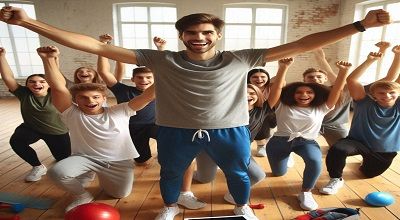Responsibilities of a Good Physical Education Teacher
The latest Responsibilities of a Good Physical Education Teacher. A good physical education (PE) teacher plays a crucial role in promoting physical activity, health, and overall well-being among students. The responsibilities of a good PE teacher extend beyond just teaching sports skills; they involve fostering a positive and inclusive learning environment. Here are some key responsibilities:
Developing Lesson Plans:
- Create well-structured and engaging lesson plans that align with curriculum objectives.
- Incorporate a variety of activities to cater to different skill levels and interests.
- Teaching Fundamental Skills:
- Instruct students on the fundamental skills of various sports and physical activities.
- Provide clear demonstrations and explanations to help students understand and master techniques.
Promoting Physical Fitness:
- Design activities that improve cardiovascular endurance, strength, flexibility, and overall physical fitness.
- Emphasize the importance of regular physical activity for maintaining a healthy lifestyle.
Ensuring Safety:
- Establish and enforce safety rules and procedures during physical activities.
- Supervise students to prevent injuries and respond appropriately if an injury occurs.
Creating an Inclusive Environment:
- Foster an inclusive and supportive atmosphere where all students feel comfortable participating, regardless of their skill level or abilities.
- Adapt activities to accommodate students with diverse needs and abilities.
Encouraging sportsmanship and teamwork:
- Instill values of sportsmanship, fair play, and teamwork.
- Emphasize the importance of cooperation, communication, and respect for teammates and opponents.
Assessing and Evaluating Performance:
- Implement fair and objective methods for assessing students’ performance.
- Provide constructive feedback to help students improve their skills and overall physical fitness.
Educating on Health and Wellness:
- Integrate health education topics related to nutrition, hygiene, and the benefits of a healthy lifestyle.
- Help students understand the connections between physical activity and overall well-being.
Adapting to Individual Needs:
- Recognize and accommodate the diverse needs and abilities of students.
- Modify activities to ensure that all students can participate and experience success.
Professional Development:
- Stay current with developments in physical education and sports science.
- Pursue opportunities for professional development to enhance teaching skills and knowledge.
Building Positive Relationships:
- Establish positive relationships with students, parents, and colleagues.
- Communicate effectively with parents about the student’s progress and achievements in physical education.
Promoting Lifelong Physical Activity:
- Instill a love for physical activity and sports that motivates students to continue being active throughout their lives.
- Provide resources and information on how to stay physically active beyond the classroom setting.
